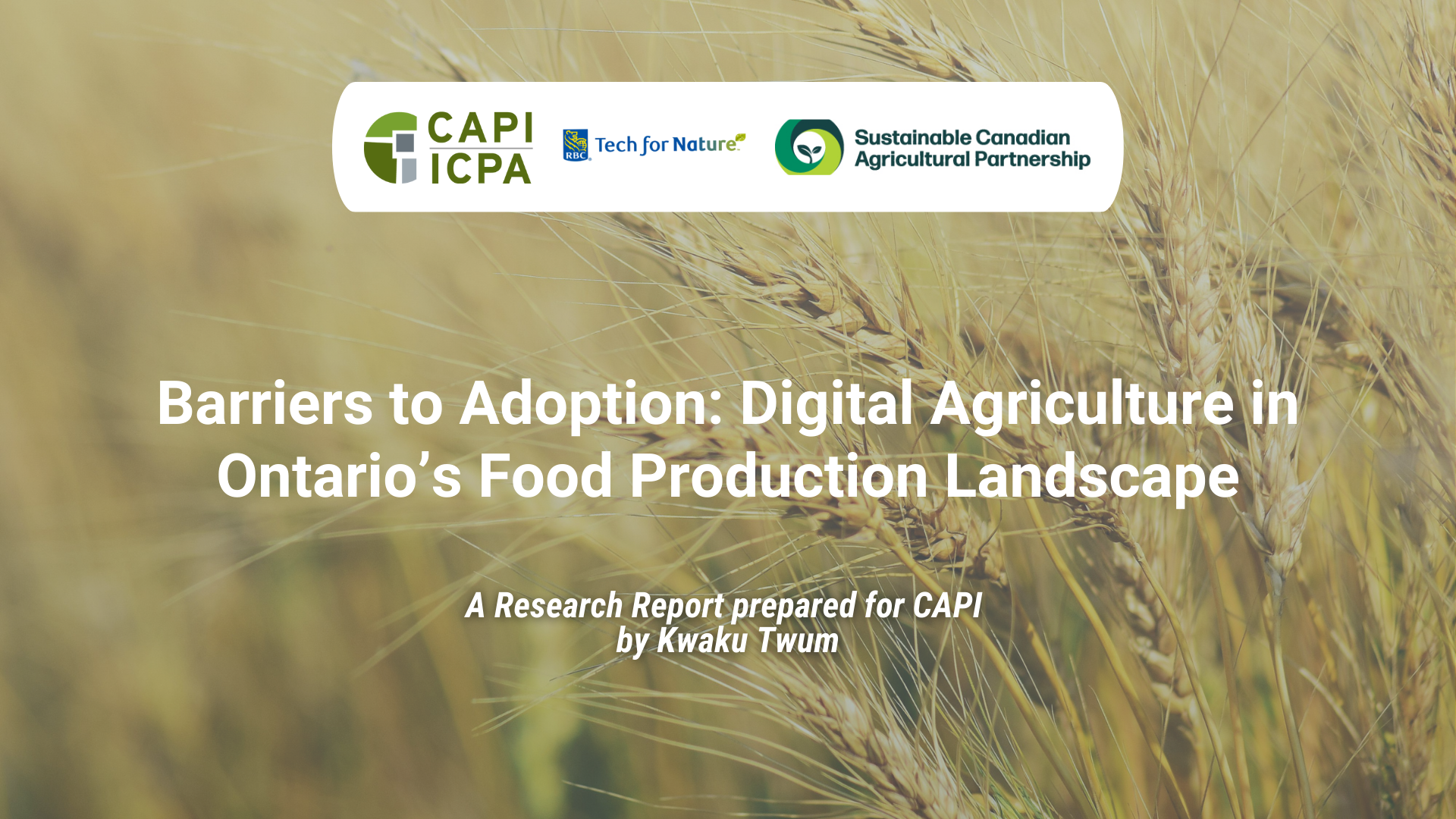Barriers to Adoption: Digital Agriculture in Ontario’s Food Production Landscape

Note from CAPI
CAPI recognizes the importance of fostering and mentoring the next generation of thought leaders emerging from Doctoral programs across Canada, who are working in multi-disciplinary fields. Through CAPI’s Doctoral Fellowship program, CAPI offers a small, innovative group of young students the opportunity to apply their knowledge and expertise to some of agriculture’s most critical policy issues.
The fourth cohort of CAPI’s Doctoral Fellows (2024-2025) was tasked with focusing their research on policies needed to address pressures on Canada’s land base and natural resources arising from agricultural production in the face of climate change, biodiversity loss, global population growth and food security concerns. This paper is the final deliverable of the program, showcasing the interdisciplinary nature of the fellows’ research as it relates to the adoption of digital technologies in agriculture in Ontario.
This Fellowship is supported in part by the RBC Foundation through RBC Tech for Nature as part of CAPI’s larger environmental initiative, Policies for Land Use, Agriculture and Nature (PLAN).
CAPI and the Doctoral Fellows would like to acknowledge the contribution of the four members of the Expert Advisory Committee who provided valuable feedback in the preparation of this report – Dr. Marie-Élise Samson, University of Laval, Dr. Tom Nudds, University of Guelph, Peter Sykanda, Ontario Federation of Agriculture, and Dr. Anatoliy Oginskyy, Alberta Ministry of Agriculture & Forestry.
Key Takeaways
- Adoption of Digital Agriculture Technologies (DATs) is uneven across Ontario. Southern regions lead, while northern and smaller farms lag due to cost and connectivity gaps.
- Policy fragmentation limits progress. Misaligned federal and provincial programs create confusion and slow adoption.
- DATs reduce emissions and improve efficiency. High-use areas show better environmental outcomes, including lower greenhouse gas emissions.
- Most farmers are unaware of DAT programs. Communication and outreach efforts are not reaching key farming communities.
- Ontario needs a coordinated digital agriculture strategy. Stronger infrastructure, training, and data governance are essential for climate-smart, inclusive adoption.
